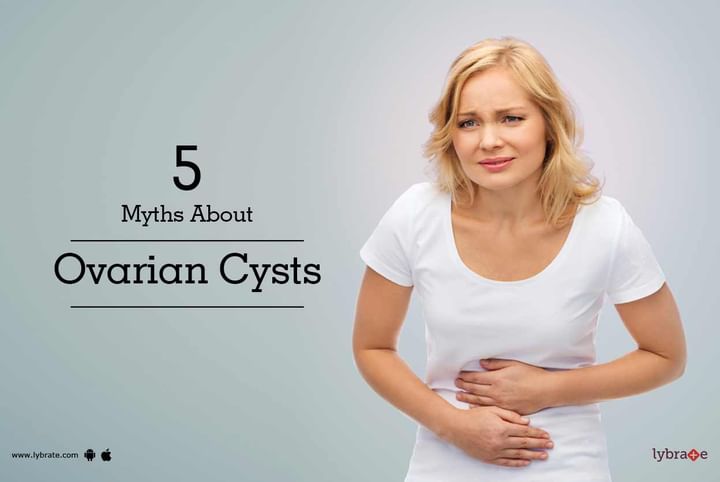Get the App
For Doctors
Login/Sign-up
Last Updated: Jan 10, 2023
BookMark
Report
5 Myths About Ovarian Cysts
Hearing a doctor diagnose you with 'ovarian cysts' can make your mind think of the worst case scenarios, but this is actually quite a common diagnosis. Almost all women are diagnosed with ovarian cysts at some point of their life. The difference lies in the type and size of cyst diagnosed. Hence, before you panic, read up and get informed. However, not everything you read online is trustworthy. Like every other health condition, ovarian cysts are surrounded by a number of myths.
Let's debunk five of the most common myths surrounding this condition:
- Myth - It requires a surgery: Contradictory to what you may initially think, not all ovarian cysts are harmful. In most cases, these cysts are small, non cancerous and will be resolved on their own. Surgery is needed only in cases where the cyst is abnormally large or where the cyst is diagnosed as a dermoid cyst or as endometriomas. Hence, if you have been diagnosed with an ovarian cyst find out how big the cyst is and what type of a cyst it is.
- Myth - It causes infertility: Being diagnosed with a cyst in your ovaries will not make you infertile or restrict your ability to bear a child. However, it can lead to complications that may cause infertility. If these cysts become infected it could lead to scarring of the fallopian tubes. This is one of the most common causes of infertility. Another situation in which an ovarian cyst may lead to infertility is if it is associated with endometriosis.
- Myth - They are cancerous: With ovarian cysts, every case is unique. However, in most cases, the cysts do not develop into cancerous cells and neither are they cancerous to begin with. A pelvic ultrasound can help your doctor diagnose the type of cyst present in your body. If the doctor deems it cancerous, he or she will usually advise surgery to remove it immediately.
- Myth - It only affect women after menopause: A cyst can develop in the ovaries at any stage of a woman's life. A number of women could even develop cysts that they are not aware of. In some cases, women can even develop these cysts post a hysterectomy that does not involve the removal of the ovaries.
- Myth - It cannot be controlled: If you suffer from recurrent ovarian cysts, taking birth control pills can help the situation. This can suppress the development of cysts in future. Losing weight if you are overweight or quitting smoking can also lower the risks of developing ovarian cysts.



+1.svg)
